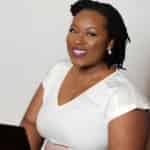How to Improve Your Finances Based on Your Enneagram
Our readers always come first
The content on DollarSprout includes links to our advertising partners. When you read our content and click on one of our partners’ links, and then decide to complete an offer — whether it’s downloading an app, opening an account, or some other action — we may earn a commission from that advertiser, at no extra cost to you.
Our ultimate goal is to educate and inform, not lure you into signing up for certain offers. Compensation from our partners may impact what products we cover and where they appear on the site, but does not have any impact on the objectivity of our reviews or advice.
The Enneagram profiler helps you discover why you do what you do and how to make better choices. This makes it a useful tool in discovering why we spend money the way we do and how to improve our financial habits.

The quest for self-discovery is a never-ending journey. The more we know ourselves, the more we have to look at not just our good qualities, but our negative ones as well.
A tool that many find helpful is personality profilers. These tests can narrow down the number of feelings, mindsets, and motivations and help us figure out why we act the way we do.
One of the biggest personality profilers used today is the Enneagram theory. What sets this personality test apart is that it not only pinpoints how you behave now, but who you could become. It helps you discover why you do what you do and how to make better choices.
This makes the Enneagram a useful tool in discovering why we spend money the way we do and how to improve our financial habits.
What’s the Enneagram?
The Enneagram is a personality profiling system with nine different types, each denoted by a number. Each type has different internal motivations and worldviews that impact their patterns of thinking, feeling, and acting.
How Your Enneagram Type Influences How You Spend

Knowing your Enneagram type can help you understand your motivations, and that’s especially true when it comes to spending.
“Your Enneagram number explains why you spend the way you spend,” says Jenn Whitmer, Certified Enneagram Coach. “Two different numbers could have the exact same behavior but are trying to get different needs met.”
So if you want to improve your spending, first figure out your spending personality based on the needs you’re trying to meet. You can find your Enneagram type by taking a free Enneagram test or reading one of the many popular books on the subject like The Road Back to You.
1. The Reformer (AKA The Budget Lover)
Ones can be rational, self-controlled, and tend to be perfectionists. They tend to suppress their own personal needs and desires to show others they have it all together and may suffer from a harsh inner critic.
“Their ‘black-and-white’ view of the world makes them masters of budgeting,” Whitmer says. “Ones thrive on doing the right thing and budgets help them do it.”
The drive for perfection motivates Ones to stay under budget in every category. “In our family budget, my husband and I each have $100 to spend as discretionary money every month. I have a hard time spending my money,” said Brittany Kline, type One and co-owner of The Savvy Couple blog. “If you ask me at any point throughout the month how much money I have left of my $100, I can tell you almost to the penny.”
Type Ones can improve their spending by making sure their budget includes the things they value and giving themselves permission to spend money on them.
Related: 7 Best Budgeting Apps for Every Type of Budgeter
2. The Helper (AKA The Giver)
Twos are caring, helpful, and relationship-oriented. They find meaning in connecting and empathizing with others.
The Two’s desire to be needed and appreciated leads them to generously give their money to family, friends, and causes they care about. When done well, this can be genuinely helpful. Otherwise, it can result in others becoming financially dependent on the giving Two or using money to bolster their philanthropic image.
If you’re a Two, start by evaluating the people and causes you want to support. Then set a limit to your giving by following a budget. Set boundaries with friends and family members who take advantage of your giving nature.
3. The Achiever (AKA The Status Spender)

Threes are goal-oriented, driven, and adaptive. They’re image-conscious and can be overly concerned with others’ opinions of them. Threes prefer to spend money on things that impress others or increase their status, but what those things look like depends on the individual.
“As an enneagram type Three achiever, I value investing and lighting up the financial scoreboard as high as possible,” said Brian Robben, CEO of Robben Media. “What matters most is my net worth, passive income, and annual income. That’s how I win in the game of money.”
Threes who spend money to maintain an image of success and luxury run the risk of racking up debt if their income doesn’t keep up with their lifestyle.
If you’re a type Three, you can improve your finances by tracking your income and following a spending plan. Make sure to incorporate your savings goals into your monthly budget, as well as lifestyle goals like enjoying more quality experiences with family.
4. The Individualist (AKA The Emotional Spender)
Fours are idealistic, expressive, and original. They’re always searching for what’s missing, either internally or in their relationships, and many express themselves well through art.
Because of the sense that there’s a void to fill, Fours can become emotional spenders, buying things to make them feel happy or validated. Purchases can be as simple as a “treat” after a long day or vacations that help them escape their everyday lives.
Whitmer says Fours need a way to express themselves.
If you’re a Four who tends to go on emotional spending sprees, look for free ways to express yourself instead, such as through writing, drawing, or playing music.
Related: 5 Signs You Have a Shopping Addiction
5. The Investigator (AKA The Deal Seeker)
Fives are analytical, innovative, and often isolated. They’re motivated by gaining knowledge and improving self-sufficiency to protect themselves and their resources from uncertainty.
Fives are naturally great at budgeting, but when they do have to spend money, their attention to detail and research skills make them great at optimizing every dollar by finding coupons and deals.
“I absolutely have to know where every dollar is going! It gives me confidence to have that kind of handle on my spending habits,” said Vickie Pierre, writer, and researcher for Loans.org. “Just the other day, I excitedly told a friend how proud of myself I was for only going $4 over budget on a recent trip. If that isn’t typical Five behavior, I don’t know what is!”
One way you can improve your spending as a Five is by evaluating if your purchase is a need or just a great deal. You can save a lot of money with a good deal, but not spending money can save even more.
6. The Loyalist (AKA The Saver)
Sixes are hard-working, responsible, and trustworthy. They’re loyal to a fault and will fiercely defend the people they care about. Sixes believe that if anything can go wrong, it will. That belief leads them to enjoy saving their money more than any other personality type.
The Six is the only Enneagram type that has two variants when it comes to how they deal with fear. Phobic Sixes are loyal to systems and beliefs and run from fears. Counterphobic Sixes are loyal to the idea that all systems and beliefs should be questioned and they’ll seek out things they fear in hopes of conquering them.
“As a Six, I tend to save and prep for some downturn I know is coming,” said Kurt Perschke, a counterphobic Six and owner of Web Baby Shower. “My counterphobic nature has also led me to seek financial security through alternative investments; the fringe can be a place for safety.”
As a Six, you can find comfort by doing the math to determine how prepared you really are by using an emergency fund calculator. In addition to preparing for the future, don’t forget to slow down long enough to enjoy the present.
7. The Enthusiast (AKA The Impulsive Spender)

Sevens are spontaneous, busy, and optimistic. They have an enthusiasm for adventure and love trying new things. Because of this, Sevens get bored easily which can lead them to spend impulsively on travel and new experiences.
“I’ll make financial goals and do my best to stick to them, but I’ll still catch myself overspending and impulsively buying things that were not included in my budget,” said Marissa Owens, type Seven and owner of MOMarketMedia. “It comes from the fear of missing out on an important experience or the fear of boredom if I don’t do it.”
If you’re an Enneagram Seven, you can improve your spending by defining your “why” and using it as your motivation. You can also look at what other Enneagram characteristics you have and play to those. For instance, Owens also has characteristics of a type Two and says it’s those motivations that help her control her spending.
“My Two wing reminds me that it’s important to stick to my budget so I can save up money to generously spend on others,” she said. “When I think about helping others over serving myself, it’s easier to stick to my budget.”
Related: Opinion: Married Couples Should Have Separate Bank Accounts. Here’s Why
8. The Challenger (AKA The Stockpiler)
Eights are self-confident, decisive, and protective of others. Type Eight personalities value being in control of their situation, which leads many of them to desire financial independence.
That desire can also lead to stockpiling things that make them less reliant on other people. Eights are always prepared and tend to spend money on keeping their pantry stocked, buying tools for DIY projects, and anything else to maintain an image of being independent and self-sufficient.
As an Eight, you may benefit from becoming more interdependent. Join a local swap or Buy Nothing Group to share what you have and be vulnerable enough to ask when you need something.
9. The Peacemaker (AKA The People Pleaser)
Nines are easygoing, inclusive, and can sometimes be seen as indecisive. They put others’ needs and desires first to keep the peace and will try to suppress their desires and feelings by indulging in food, drink, or entertainment.
Nines tend to have difficulty saying “no” and often agree to things they don’t want to do, including spending money. Nines will go to dinner, on vacation, and anywhere else their friends and family want to without considering if that’s where they want to spend their money.
If you’re a Nine, consider exerting more autonomy and decisions in your own best interest about how and where to spend your money. Rather than trying to blend in, align your spending with your priorities. And rather than spending money to suppress feelings, look for healthy ways to express them.
Related: Money and Relationships: How to Merge Finances Without Any Drama
There’s No One-Size-Fits-All Spending Style
Knowing your Enneagram personality type can be a powerful tool to improve your spending. Whether you need to spend less or give yourself permission to spend more, it allows you to capitalize on your strengths and forgive yourself for weaknesses. You might also find that you have characteristics of a few different types.
In the end, the goal is to have a spending style that’s tailored to you. Only then will you find creating better spending habits is easier than you thought.








